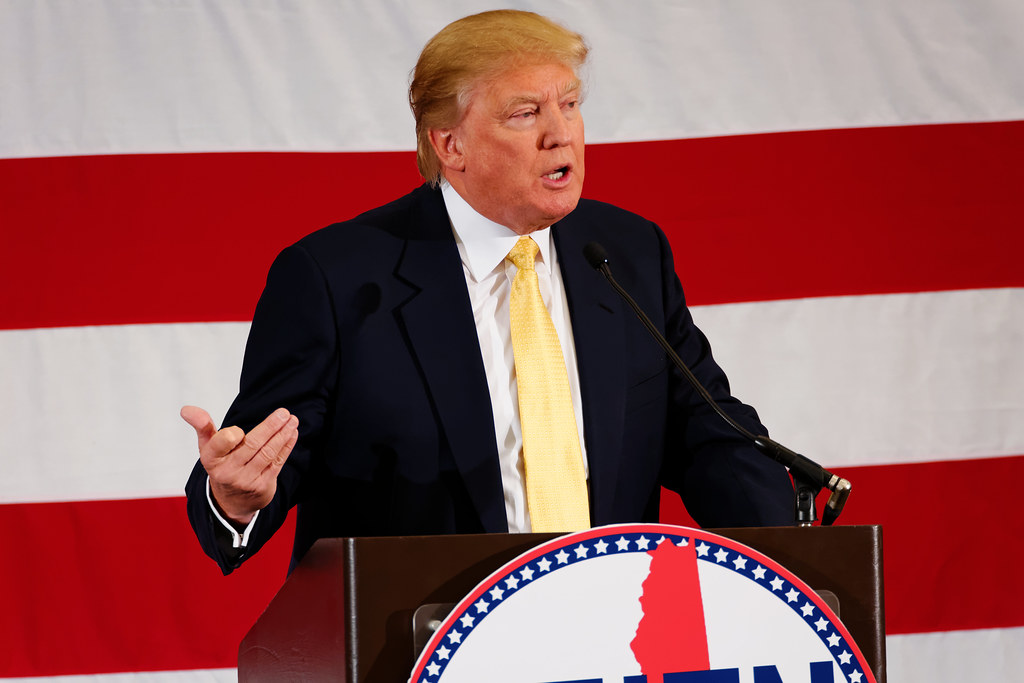Key Takeaways:
- President Trump praised Charlie Kirk’s talent for uniting the movement.
- Trump revealed he disagreed with Charlie Kirk’s wish to be kind to opponents.
- He admitted he feels hostility toward his political rivals.
- Trump asked Erika Kirk to persuade him to change his view.
President Donald Trump spoke at a memorial for conservative activist Charlie Kirk in Arizona. He honored Kirk’s work to bring people together. Yet he admitted he strongly disagreed with one of Kirk’s core beliefs. In a private story, Trump shared Kirk’s last wish to be kind to his foes. However, Trump said he hates his opponents and does not wish them well. His candid confession surprised many in the audience.
Why Trump Disagrees with Charlie Kirk
Trump said that in Kirk’s final hours, the activist showed great compassion. Charlie Kirk told a staff member he wanted to “lead them into the great way of life in our country.” Trump called Kirk a “missionary with a noble spirit.” He explained that this wish to be kind to opponents seemed wrong to him.
However, Trump said he feels the opposite. He told the crowd, “I hate my opponent and I don’t want the best for them.” He even apologized to Erika Kirk, Charlie’s sister. He said, “I am sorry, Erika. I can’t stand my opponent right now.” Trump added that perhaps Erika could convince him otherwise.
Kirk’s Legacy of Unity
Charlie Kirk rose to fame by speaking directly to young conservatives. He founded a national student group that pushed for limited government and free speech. Many credit him with helping unite the MAGA movement. He debated his critics with confidence and charm. As Trump noted, Kirk never spoke with hate toward his foes. Instead, Kirk aimed to win them over to his ideas.
Moreover, Kirk inspired students on many campuses. He hosted tours, held rallies, and led debates. His style encouraged respectful discussion, even with those who disagreed. He often said he wanted to change minds, not to destroy them. That message shaped a generation of young activists.
Trump’s Unfiltered Remarks
During the memorial, Trump spoke without a script. He praised how Kirk built bridges across the movement. Yet he made clear his personal style differs. Transitioning from praise, Trump told a private tale about Kirk’s last hours. He described Kirk urging kindness to opponents on the day he was assassinated.
Then Trump admitted he felt differently. He said he hates his political rivals. He used strong language to express his dislike. This raw honesty grabbed headlines around the world. Some viewers praised his frankness. Others felt uneasy at the confession on such a solemn day.
Even so, Trump paused and addressed the family directly. He asked Erika Kirk to help him learn kindness. He said her brother’s spirit could teach him a valuable lesson. This moment showed a rare blend of emotion and politics.
Public Reaction and Next Steps
News of Trump’s disagreement with Charlie Kirk spread quickly. Social media lit up with debates and opinions. Many supporters praised Trump’s honesty. They said it showed he is real and unfiltered. Meanwhile, critics argued that wishing harm on opponents goes too far.
Erika Kirk has not yet publicly responded. Observers expect her to address Trump’s request for guidance. If she agrees, it could spark new conversations in conservative circles. Some wonder if this moment might soften Trump’s tone in future speeches.
Regardless of the outcome, this exchange highlights a key split. On one side stands Charlie Kirk’s hope for unity and respect. On the other stands Trump’s embrace of fierce partisan conflict. The conversation raises questions about the future of conservative politics.
Lessons from the Memorial
This memorial taught several lessons for activists and leaders:
Use Kind Words: Charlie Kirk believed respectful debate could win hearts and minds. He urged kindness, even toward opponents. Many now view this as a model for healthy dialogue.
Admit Your Style: Trump showed it is okay to speak your truth. He made clear he feels hostility toward rivals. That honesty resonates with part of his base.
Seek Common Ground: Even in disagreement, Trump asked for help from Kirk’s family. This step hints at the power of collaboration. It suggests that even fierce opponents might find a path forward.
Balance Strength and Respect: The event became a lesson in personal style. Leaders can be strong yet still show respect. Finding that balance remains a key challenge.
What Comes Next
As the conservative world reflects on this speech, several questions emerge:
- Will Trump soften his tone? Perhaps Erika Kirk can persuade him to show more respect to opponents.
- Will activists follow Charlie Kirk’s example? His life proves unity can grow a movement.
- How will the family respond? Their reaction could set a tone for future debate.
- Could this moment bridge divides? A single act of kindness might change political norms.
- Only time will tell how these events shape the next chapter in politics.
Frequently Asked Questions
Why did Trump speak at Charlie Kirk’s memorial?
He wanted to honor Kirk’s role in uniting conservatives and share personal stories.
What disagreement did Trump reveal?
He said he hates his political opponents and does not wish them well, unlike Kirk.
Who is Erika Kirk?
She is Charlie Kirk’s sister. Trump asked her to help him learn kindness.
How might this speech affect politics?
It highlights a split between unity and fierce debate. It may influence future rhetoric.
